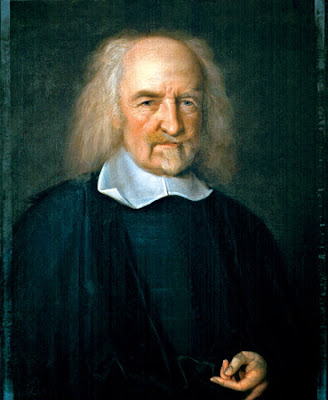“This book contains all the malice, and revenge, and treason, that mankind can be guilty of: It fixes the sole power in the parliament and the people … The king, it says, is responsible to them, the king is but their trustee; that he had betrayed his trust, he had misgoverned, and now he is to give it up, that they may be all kings themselves. Gentlemen, I must tell you, I think I ought more than ordinarily to press this upon you, because I know, the misfortune of the late unhappy rebellion, and the bringing the late blessed king to the scaffold, was first begun by such kind of principles …”
– Lord Chief Justice Jeffreys, in the trial of Algernon Sidney (1683) – explaining the reasons for his decision to have Sidney executed for high treason at that time
Algernon Sidney
Algernon Sidney was executed by the English government in 1683 for writing a book
Algernon Sidney was executed by the English government in 1683 for writing a book. Lord Chief Justice Jeffreys convicted him of high treason for writing these “Discourses Concerning Government.” (See the quotation at the beginning of this blog post, to hear Justice Jeffreys’ account of why he did so.) But others would later sing the praises of this book. One writer would call it “the textbook of the American Revolution.” Some referred to Algernon Sidney as “Sidney the Martyr,” because he paid for that book with his life. And, most prominently, John Adams and Thomas Jefferson were both fans of this book. Thomas Jefferson said that it was “probably the best elementary book of the principles of government, as founded in natural right, which has ever been published in any language.” (See the citation for this praise later on in this post.) I have not yet read this book, but I might like to do so at some point, after hearing the praise from these two men. In this post, I will examine Sidney’s influence upon John Adams and Thomas Jefferson. I will also try to show Sidney’s influence upon the Declaration of Independence.
Lord Chief Justice George Jeffreys, who had Algernon Sidney executed for treason
















